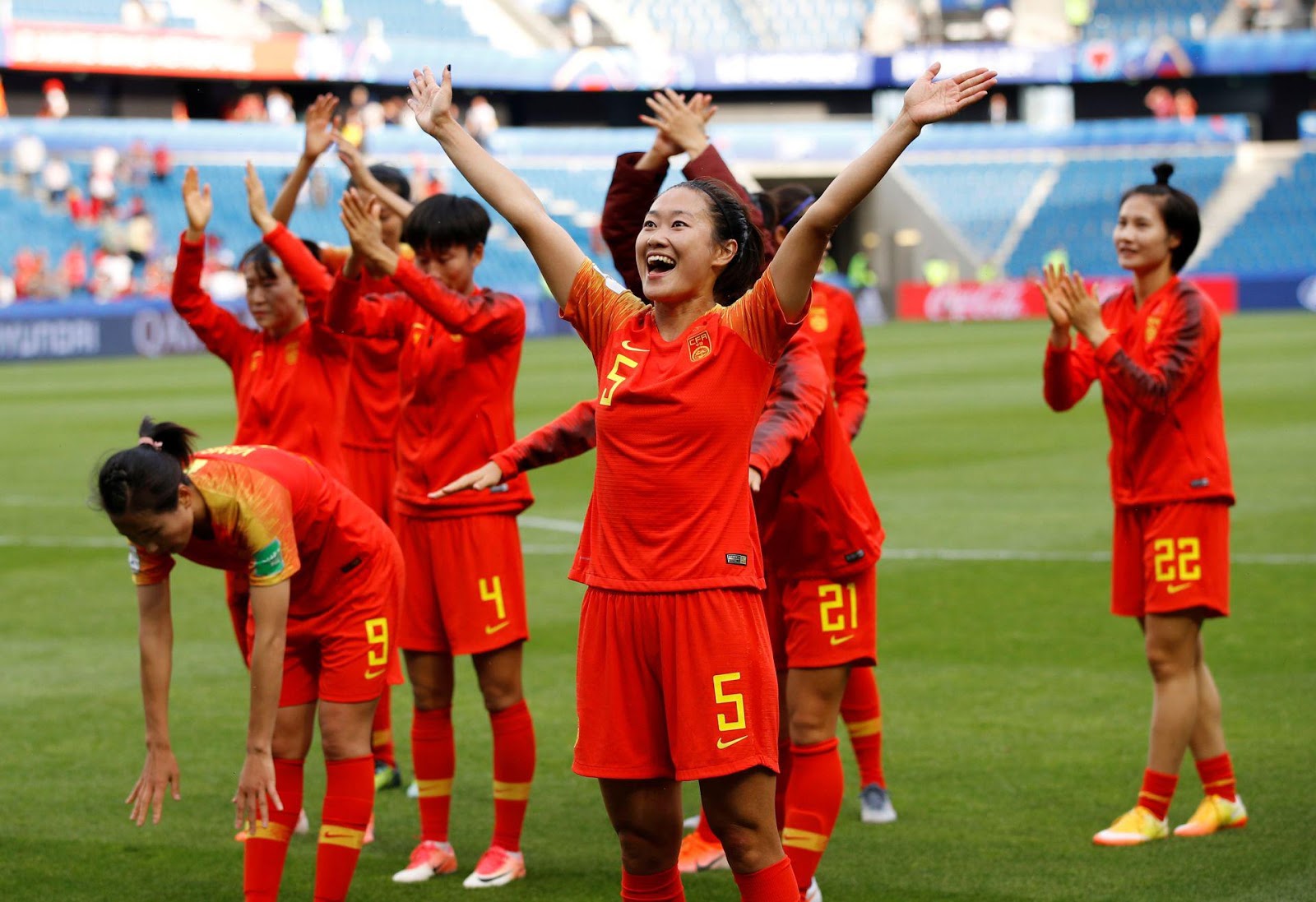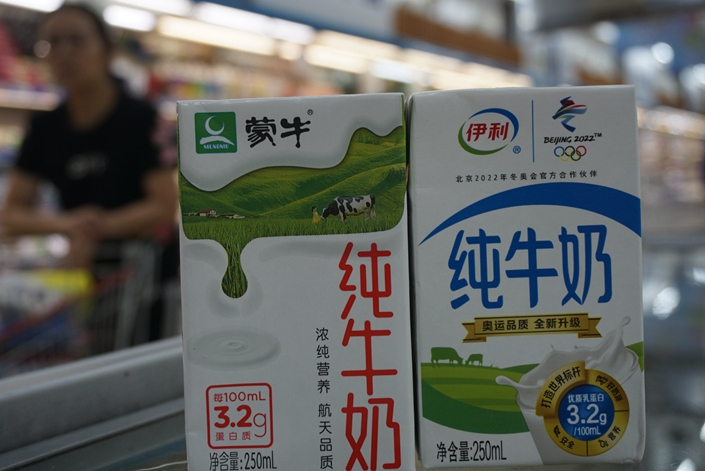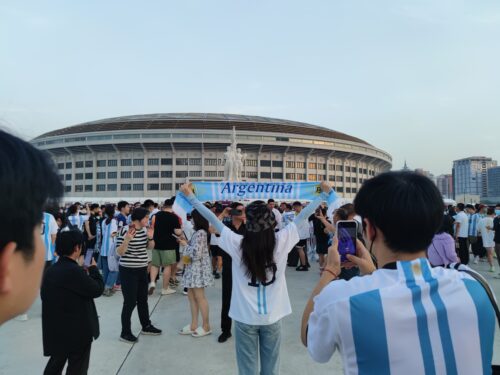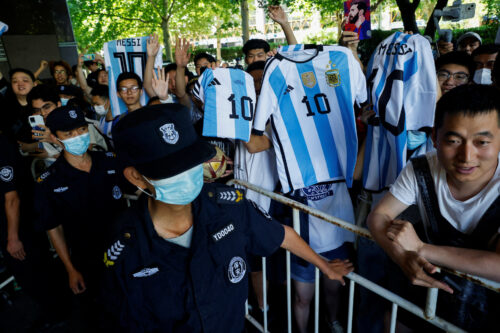China vs. Italy among more interesting matchups in Women’s World Cup Round of 16

The China Sports Column is a The China Project weekly feature in which China Sports Insider Mark Dreyer looks at the week that was in the China sports world.
Italy vs. China in soccer is a no-brainer, right? Italy ranks right up there in the pantheon of great footballing nations, alongside Brazil, Argentina, and the rest, with four World Cups and a European Championship on the honor roll. Meanwhile, you probably don’t need to know much about either China or football to have heard that it’s not a sport in which the country excels — to the endless shame of its citizens.
But in the world of women’s football, things aren’t quite as straightforward.
China made the final of the Women’s World Cup in 1999 and has never failed to reach at least the quarterfinals of the tournament in each of its five previous appearances. Italy, in contrast, has reached the quarterfinals just once — way back in 1991 at the inaugural tournament — and, until this year’s edition, had failed to even qualify since 1999.
FIFA rankings are notoriously unreliable, but in the absence of any other metric, still serve as a useful reference point for a country’s progress. An Italian renaissance in recent years has seen the team climb up to 15th spot at the last count, edging past China, who stand at 16th.
But if on paper the Round of 16 game between the two (Tuesday, June 25, noon EST / Wednesday, June 26, midnight China time) is a toss-up, Italy will still start as favorites.
Italy, Brazil, and Australia each won two out of three games in Group C, but it was the Italians who topped the table, courtesy of their superior goal difference (scoring seven while conceding two). China, meanwhile, scored just one goal across three games, finishing third in Group B.
But while the Italians won’t fear the Chinese one bit, this draw is about as good a matchup as China could have hoped for.
By not beating Spain last Monday, China avoided a second-place finish in the group, which would have meant a tie against the mighty Americans — reigning champions, top seeds, and scorers of a record 18 goals so far (and none conceded). That fate now befalls Spain instead.
England had also loomed as likely opponents, to the point where Xinhua was asking English coach Phil Neville about the Chinese side — a “good team” and “disciplined,” for the record.
Despite their solitary goal, China has been solid in defense, with goalkeeper Peng Shimeng the player of Monday’s match against Spain. But with just one shot in the entire game versus a staggering 24 from its opponent, China needs to reverse the momentum in its first must-win clash of the tournament.
Juventus striker Cristiana Girelli has led the free-scoring Italians with three goals, while club teammates Barbara Bonansea and Aurora Galli each have two.
Meanwhile, China’s one bona fide star, Wang Shuang, has looked out of sorts so far, starting the first game from the bench amid rumors of a fall-out with coach Jia Xiuquan and then being withdrawn after 55 minutes in the game against Spain.
This piece from @PlayersTribune by China's star player @wangshuang7 is absolutely extraordinary for several reasons, not least the public soul baring by a Chinese athlete: https://t.co/9R63ipmAP5
— Mark Dreyer (@DreyerChina) June 17, 2019
Wang needs to quickly rediscover the form that made her Asian Women’s Footballer of the Year, otherwise China’s progress in the tournament could come to an abrupt end.
A victory in the knockout stages would qualify as success for China, but given the team’s historic streak of quarterfinals-or-better, to lose on Tuesday night in Montpellier has to be considered as failure.
The Chinese women are supposed to be one of the world’s top teams by 2030, according to the country’s much-vaunted soccer Grand Plan, but the recent evidence points, if anything, to a decline rather than an improvement.

There was a bizarre splash in the world of Chinese milk this week, as rivals Yili and Mengniu clashed over Olympic sponsorship.
Yili is an “Official Partner” — the second of three sponsorship tiers — for the 2022 Winter Olympics in Beijing, but posted a claim on its WeChat account on Thursday that Mengniu had partnered with Coca-Cola, a long-time top-tiered “Worldwide Olympic Partner,” thereby infringing on its rights as the sole dairy partner of the Olympics.
The post was later removed, but alleged that Mengniu, known throughout the country for its milk and dairy products, had attempted to sign up with Coca-Cola as a “joint beverage global partner,” thereby bypassing the more narrow “dairy” categorization.
Cofco, which owns a 20 percent stake in Mengniu, has partnered with Coca-Cola since 1979 and helps distribute its drinks across China.
The implication of Yili’s post was that the sponsorship categories had been deliberately muddied, and would confuse consumers.
The International Olympic Committee (IOC) sells both international and domestic sponsorship rights for a Games, but typically distinguishes between the categories, so that there is no conflict, even across sponsorship tiers.
And it’s not the first time concerns have been raised, with Alibaba’s varied interests including a cloud computing wing (Aliyun) and a payments provider (Alipay) that could potentially encroach on existing Olympic sponsors Atos and Visa, respectively.
Nor is it the first time the two Chinese milk rivals have clashed over sports sponsorship.
Yili, notorious in the West for a less-than-subtle product placement in Transformers 3, partnered with swimming star Ning Zetao in the build up to the 2016 Rio Olympics to promote one of its yogurt drinks.
But this caused problems, because the Chinese Swimming Association (CSA) had an existing team deal with Mengniu that covered all swimmers, including Ning.
Ning was actually dropped from the Olympic squad as a result of the row and was only reinstated at the last minute when the two sides came to a compromise — no doubt helped by the fact the CSA keeps 50 percent of a swimmer’s commercial deals, with an additional 12 percent going to the coaches, an arrangement that has continually caused issues.
But if the relationship between Mengniu and Yili has long been sour, it now appears well and truly spoiled.
The China Sports Column runs every week on The China Project. Follow Mark Dreyer @DreyerChina.





